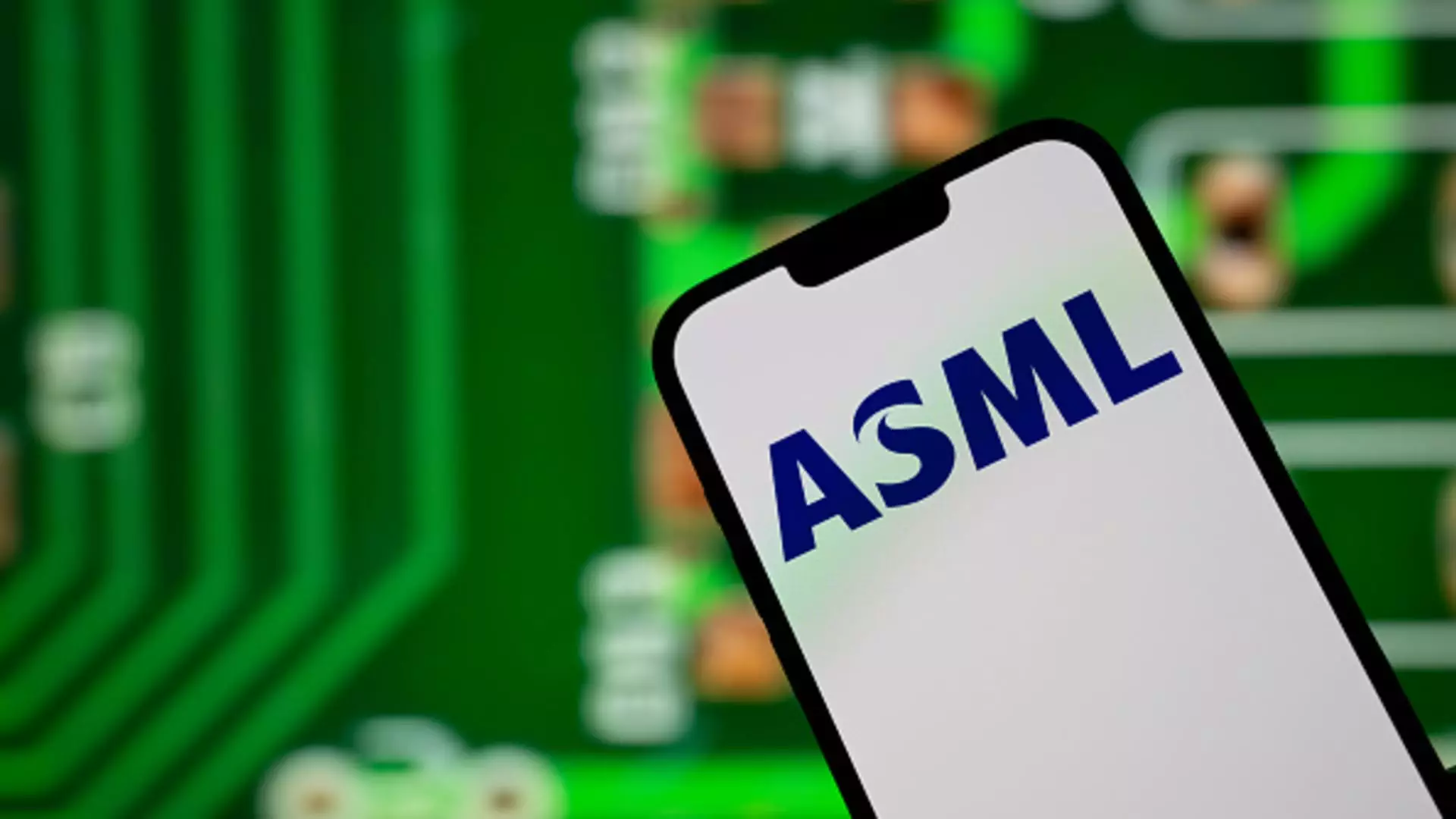ASML, the prominent Dutch semiconductor equipment manufacturer, recently released its financial results for the first quarter of 2025, signaling a concerning trend as it fell short of market expectations for net bookings. Reporting net bookings of €3.94 billion (approximately $4.47 billion), the company’s performance lagged behind the anticipated €4.89 billion forecast by Reuters. This disappointing outcome raises eyebrows about the vitality of demand for ASML’s indispensable chipmaking machinery, which is central to the production of semiconductors.
While ASML reported net sales of €7.74 billion, slightly below the expected €7.8 billion, its net profit of €2.36 billion did surpass the forecast of €2.3 billion. These figures reiterate a complex narrative; despite profitability, the decline in bookings paints an unsettling picture of the semiconductor industry’s current trajectory.
AI as a Double-Edged Sword
ASML’s CEO, Christophe Fouquet, emphasized that the demand outlook remains robust, with artificial intelligence (AI) being a principal catalyst for growth. However, this optimism seems to hinge on fragile ground, as Fouquet openly acknowledged “uncertainty with some of our customers.” The phrase “potential slowdown” in the context of such a transformative market as semiconductors should not be taken lightly. The implications of fluctuating demand can ripple through the industry, potentially affecting innovation pipelines and long-term planning.
It’s intriguing how Fouquet described the tariffs as “creating a new uncertainty.” This remark underlines the influence that macroeconomic factors can exert on high-tech industries. With tariffs positioning themselves as formidable barriers, companies like ASML must tread carefully to navigate the turbulent waters ahead. The company’s full-year revenue guidance of between €30 billion to €35 billion may still remain in reach, but it’s tempered by the prevailing ambiguity surrounding customer demand.
The Semiconductor Landscape: A Complex Web of Challenges
The semiconductor industry has been on shaky ground, particularly due to external pressures such as ongoing trade tensions and regulatory investigations. U.S. President Donald Trump’s tariff initiatives have exacerbated existing worries about the semiconductor supply chain’s sustainability. The news of a temporary exemption for certain tech products could provide a brief respite, but the long-term effects of these tariffs remain a pressing concern. The implications of such duties extend beyond mere financials; they could alter supply chains and investments for years to come.
Fouquet’s insistence on monitoring these dynamics closely demonstrates a realistic understanding of the challenges that lie ahead. The volatility in the semiconductor market can be disheartening, especially for a company that has played a pivotal role in the production of the world’s essential electronic devices. The need for flexible strategies has never been greater, as ASML navigates this precarious environment, while leveraging cutting-edge technologies like AI.
The unfolding situation highlights a broader narrative: that while the semiconductor sector is crucial for modern technology, it is equally susceptible to seismic shifts in geopolitical stability and economic policies. ASML’s ability to adapt and thrive amid these uncertainties will be critical not just for its own future, but for the health of the global semiconductor ecosystem at large.


Leave a Reply